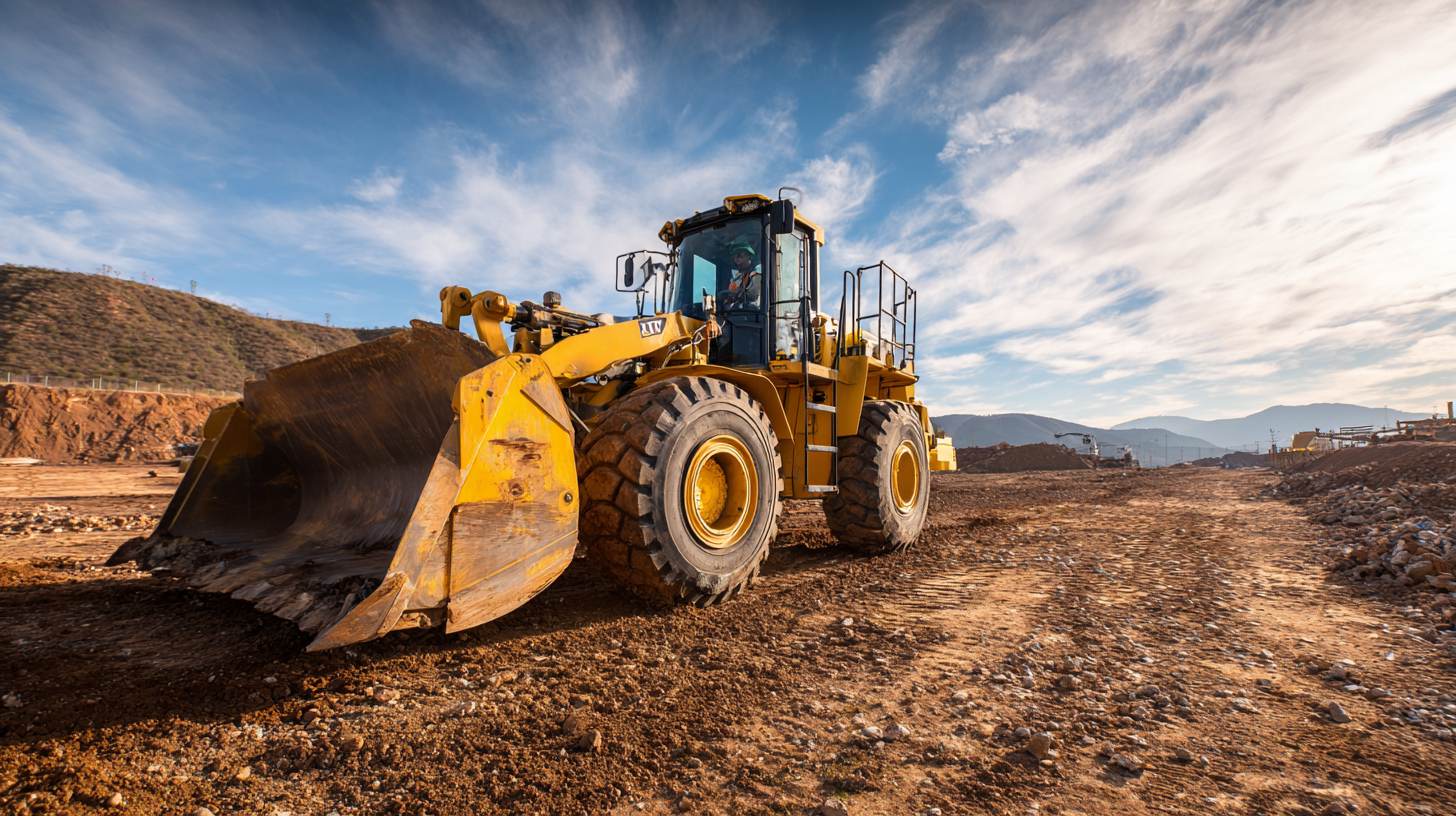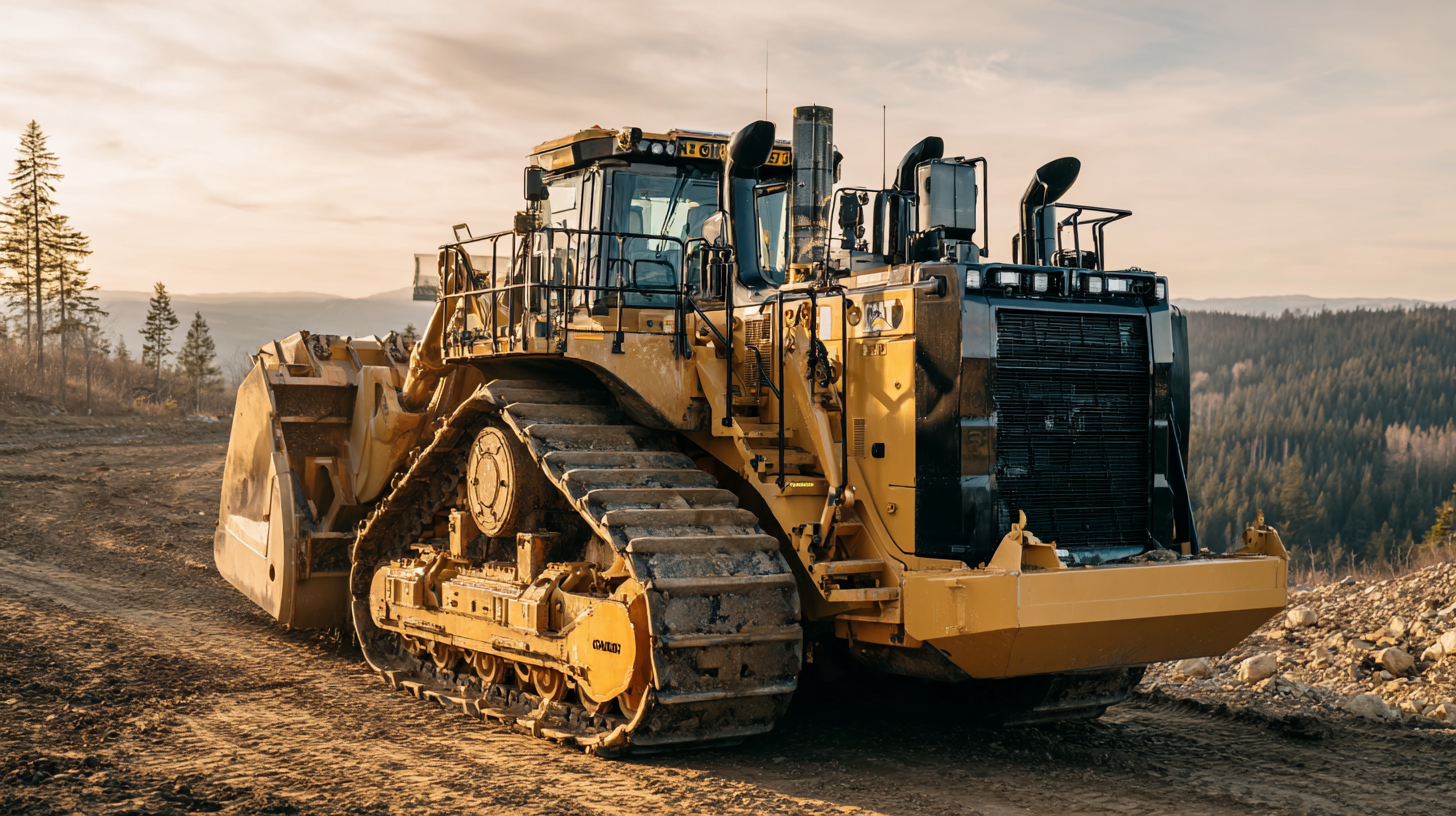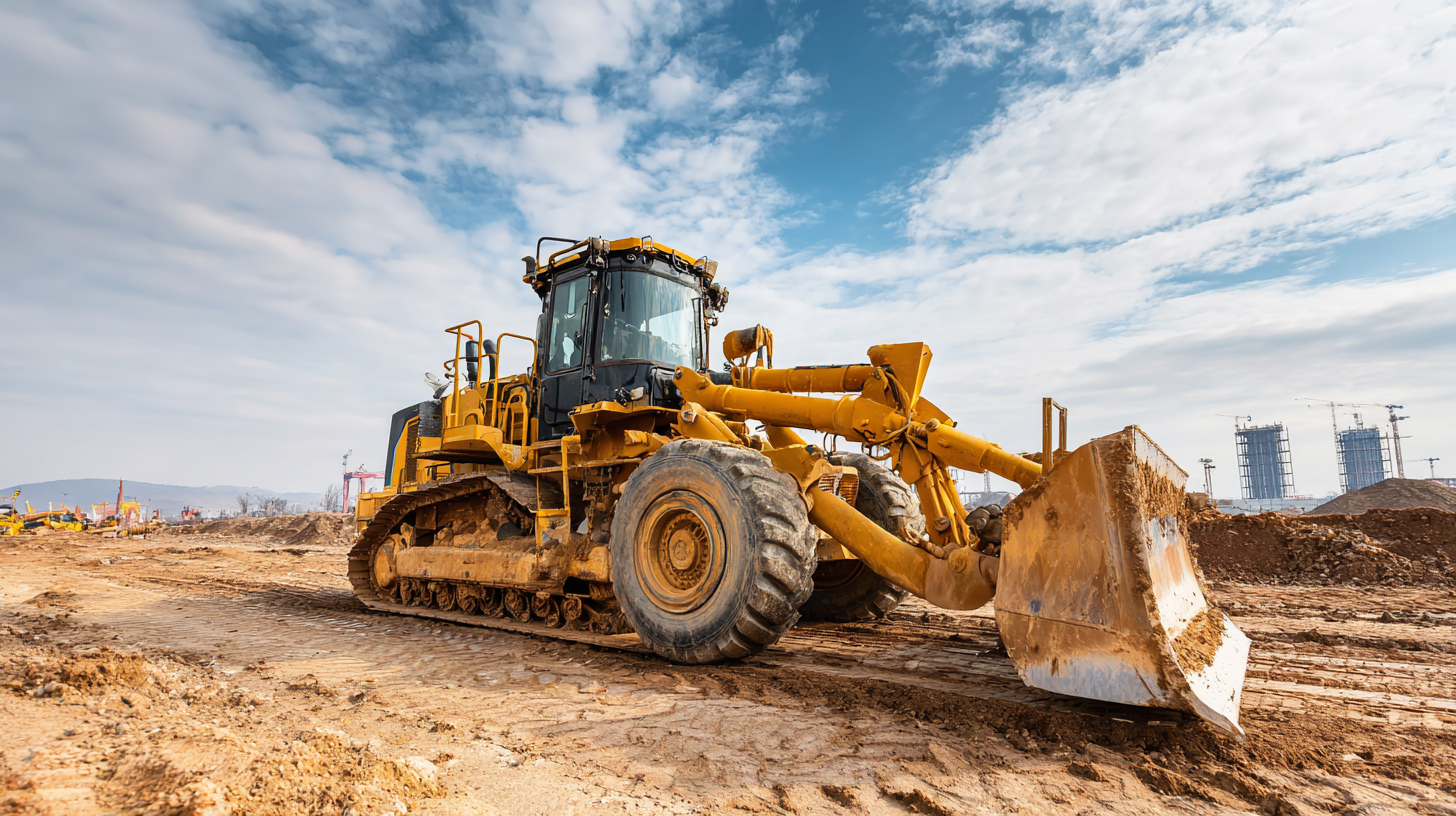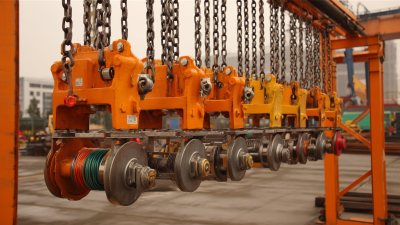Mastering Heavy Equipment: A Comprehensive Tutorial for Industry Professionals
In the ever-evolving landscape of construction and industrial sectors, mastering heavy equipment stands as a cornerstone of operational efficiency and safety. This comprehensive tutorial aims to equip industry professionals with the essential knowledge and skills required for proficiently handling various types of heavy equipment. Whether you are an aspiring operator eager to construct a solid foundation for your career or an experienced professional looking to refine your expertise, this ultimate guide will delve into critical topics such as equipment selection, maintenance protocols, safety measures, and advanced operational techniques. By understanding the nuances of heavy equipment management, practitioners can not only enhance their productivity but also contribute to a safer work environment. Join us on this journey to become a master of heavy equipment and unlock the full potential of your capabilities in the field.

Understanding the Fundamentals of Heavy Equipment Operations
Understanding the fundamentals of heavy equipment operations is essential for industry professionals aiming to excel in their roles. Heavy equipment encompasses a variety of machines used in construction, mining, and other industrial applications. Knowledge of these machines not only enhances operational efficiency but also ensures safety on job sites. Key components such as hydraulics, powertrains, and control systems are critical areas of study, as they determine the performance and functionality of the equipment.
Moreover, hands-on experience is invaluable. Professionals should engage in training programs that provide practical exposure to various types of heavy equipment. Familiarity with operation manuals and maintenance schedules further strengthens an operator’s capability, promoting a culture of safety and competence. By diving deep into the mechanics of these machines and understanding their operational limits, practitioners can optimize performance and minimize risks, ultimately contributing to successful project outcomes.
Essential Maintenance Tips to Extend the Lifespan of Heavy Machinery
Maintaining heavy machinery is crucial for ensuring optimal performance and longevity. To achieve this, one must implement regular maintenance routines that not only prevent downtime but also extend the lifespan of the equipment. A well-maintained machine not only performs better but also has a lower risk of unexpected breakdowns.
One essential tip is to conduct routine inspections of the equipment. This includes checking fluid levels, inspecting hoses and belts for wear, and ensuring that all safety features are functional. Regularly scheduled maintenance, like oil changes and filter replacements, is vital to keep the machinery running smoothly. Additionally, maintaining a clean work environment helps prevent dirt and debris from entering sensitive parts of the machinery.
Another key maintenance practice is lubricating moving parts regularly. Proper lubrication reduces friction and wear, significantly enhancing the efficiency of the machinery. It’s also important to train operators on the best practices for usage; improper handling can lead to unnecessary strain and damage. By following these essential maintenance tips, industry professionals can keep their heavy equipment in top condition and maximize the value of their investment.
Mastering Heavy Equipment: A Comprehensive Tutorial for Industry Professionals - Essential Maintenance Tips to Extend the Lifespan of Heavy Machinery
| Maintenance Task | Frequency | Estimated Time (Hours) | Key Benefits |
|---|---|---|---|
| Fluid Checks and Changes | Monthly | 2 | Ensures optimal performance and prevents component damage |
| Filter Replacements | Every 500 hours | 1.5 | Enhances engine efficiency and prolongs equipment lifespan |
| Tire Inspection and Pressure Checks | Weekly | 0.5 | Improves safety and reduces operational costs |
| Battery Maintenance | Every 3 months | 1 | Prevents unexpected failures and ensures reliability |
| Lubrication of Moving Parts | Every 40 hours of operation | 1 | Reduces wear and tear, enhancing machinery efficiency |
Safety Protocols Every Heavy Equipment Operator Must Know
Operating heavy equipment comes with significant responsibilities, and safety protocols are paramount to ensuring the well-being of both the operator and those nearby. Every heavy equipment operator must familiarize themselves with a set of essential safety measures to prevent accidents and injuries. Prior to starting any machinery, conducting a thorough pre-operation inspection is crucial. This involves checking fluid levels, brakes, lights, and safety devices to ensure everything is functioning correctly. Operators should also be aware of their surroundings, including overhead hazards and multiple worksite activities, to maintain a safe operational environment.
In addition to pre-operation checks, continuous education on safety protocols is vital. Operators should be trained in the proper use of personal protective equipment (PPE), such as helmets, gloves, and high-visibility clothing. Furthermore, understanding the specific safety features of the equipment, like load limits and emergency shutdown procedures, can profoundly impact the safe operation of heavy machinery. Implementing these safety protocols not only protects operators but also fosters a culture of safety in the workplace, ultimately enhancing productivity and workplace morale.
Advanced Techniques for Maximizing Heavy Equipment Efficiency
Maximizing heavy equipment efficiency requires a blend of advanced techniques and a deep understanding of machinery functionality. One crucial method is regular maintenance, which not only extends the life of the equipment but also ensures it operates at peak performance. Scheduled inspections and servicing prevent unexpected breakdowns and downtime, saving both time and money for industry professionals. Additionally, implementing predictive maintenance through data analysis can help identify potential issues before they escalate, allowing for timely interventions.
Another effective technique is operator training and certification. Skilled operators who are well-versed in the specific machinery can maximize its capabilities and ensure safe operation. Training programs that focus on best practices, safety protocols, and equipment handling can significantly enhance productivity. Furthermore, utilizing technology such as telematics and automated systems can aid in monitoring performance metrics in real time, allowing operators to make data-driven decisions that optimize efficiency and reduce fuel consumption. By combining these advanced techniques, industry professionals can significantly improve the operational efficiency of their heavy equipment, leading to increased profitability and sustainability.

Navigating Industry Regulations and Certification Requirements for Operators
Navigating the complexities of industry regulations and certification requirements is crucial for operators of heavy equipment. According to a report by the Bureau of Labor Statistics, employment of heavy equipment operators is projected to grow 10% from 2022 to 2032, highlighting the increasing demand for skilled professionals in this field. To ensure safety and compliance, operators must adhere to stringent regulations set forth by the Occupational Safety and Health Administration (OSHA) and the National Commission for the Certification of Crane Operators (NCCCO). These regulations not only safeguard operators but also contribute to improved workplace safety.

Certification requirements vary by state and type of equipment, but most operators are required to pass written and practical exams to demonstrate their proficiency. A 2023 survey conducted by the Association of Equipment Manufacturers revealed that 70% of companies prioritize hiring certified operators, recognizing that certification directly correlates with increased safety and operational efficiency. The need for ongoing education and re-certification is essential as technology and safety standards evolve, further emphasizing the importance of staying current with industry practices. As the landscape of heavy equipment operation continues to change, understanding and complying with regulatory requirements will remain a top priority for industry professionals.
Related Posts
-

5 Key Reasons Why Best Heavy Equipment is Essential for Maximizing Construction Efficiency
-

Exploring Innovative Alternatives to Traditional Lifts: Insights from the Best Lift Company
-

Global Buyers Seek Quality: Chinese Electric Chain Hoists Leading the Market with Excellence
-

China's Best Glass Lifter Revolutionizing Quality Standards and Earning Global Respect
-

Exploring Diverse Options for Essential Lifting Supply Solutions
-

Harness the Future: Discover Innovative Material Lifts at the 2025 Canton Fair
